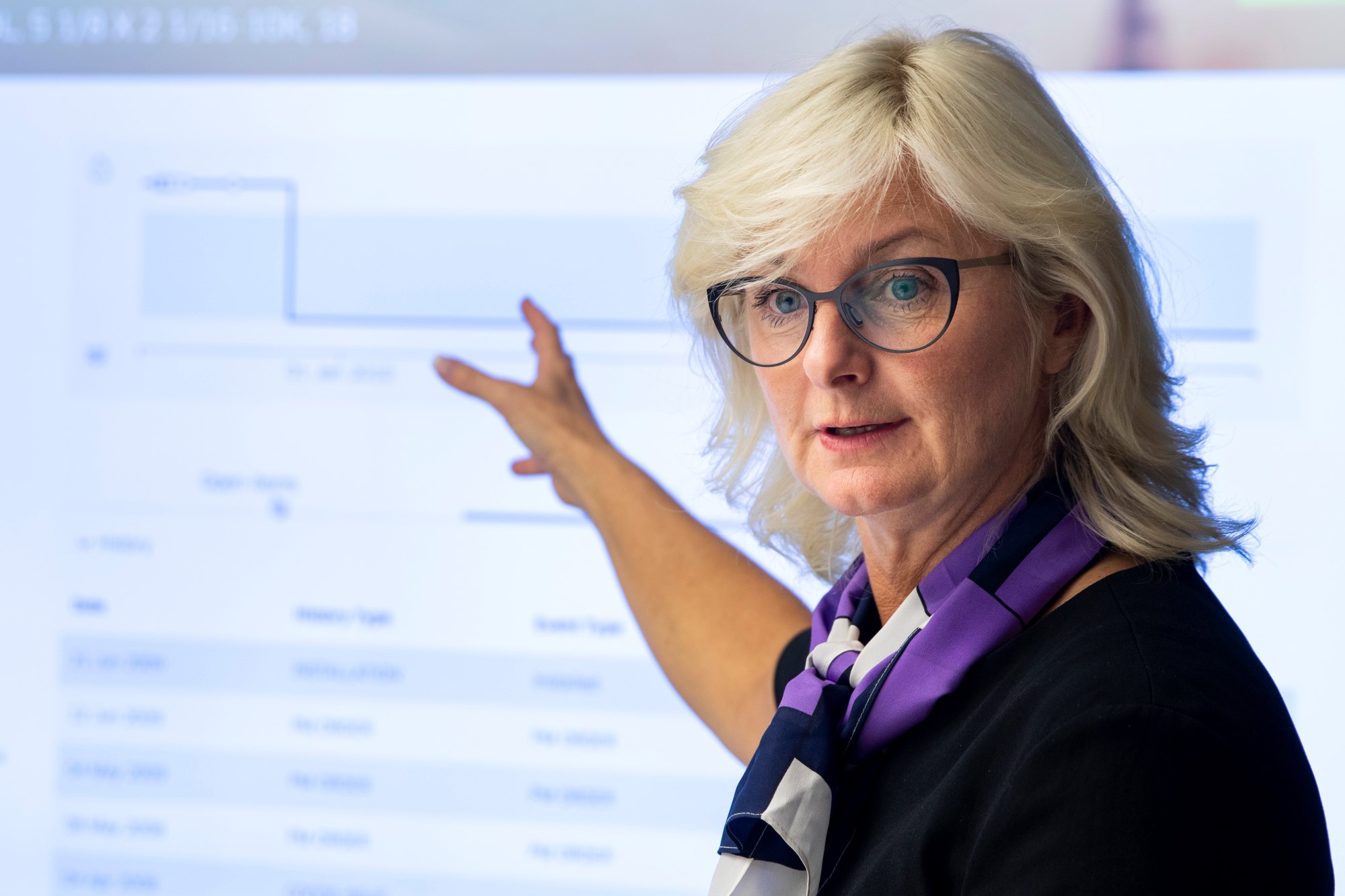Digitalisation without revolution
Converting 37 000 people to life in a digital workplace is a question of cultural adaptation, maintains TechnipFMC’s Ann-Christin Andersen. And that calls for small steps at a time.
 Photo: Tore Meek/NTB scanpix
Photo: Tore Meek/NTB scanpix
- Cyber security
Andersen chose to locate the headquarters for this drive to Norway after being hand-picked last autumn for the job of chief digital officer at the subsea giant.
“Although a great deal of digital development takes place elsewhere, this country is very advanced when it comes to adopting the technology,” she observes. “So it’s a good place to try out what the transformation means for an industry like ours.”
Plans
Rapid technical advances mean Andersen has dropped three-year plans in favour of ones spanning just nine months at a time. But she does not regard the transformation as a revolution.
“The biggest conflict I experience is the breakneck speed of technological progress,” she says. “At the same time, the cultural upgrade needed to utilise these developments is pretty slow.”
TechnipFMC took a strategic decision at an early stage that it would not become a digital company, Andersen
“Rather, we’re trying to inject digital technology and new ways of working into the existing organisation. Our approach is therefore to develop our employees and the way we address customer problems and requirements.”
Gap
Andersen believes that leading the petroleum industry into a digital future depends on understanding the gap between rapid technological progress and the need for staged cultural change.
“You must grasp what’s achievable,” she says. “You can’t just snap your fingers and say the culture’s now upgraded. There’s 37 000 of us in TechnipFMC, so this must happen step by step.”
At the same time, she emphasises, the company must not underestimate the expertise needed to maintain existing technology. The new aspects are not the only things which count.
“Nor is everything being upgraded at the same time. Both old and new will be mixing with each other, so we must continue to retain a breadth of expertise.
“Right now, we’re working to get the organisation to describe more clearly what problems it wants to see solved rather than what technologies it would like to use.
“If we manage to define a problem, it’s much easier to determine which digital solutions give the best value. That’s an important part of our cultural upgrading.”
Future
When the digital supremo looks into her crystal ball, she sees a future for the oil industry where it employs far fewer people than at present.
Many operations are being moved ashore, while those personnel who’re left offshore will have digital aids which make them better equipped to take difficult decisions.
Andersen believes this trend will help to boost safety. “And ICT security will become a fundamental value in the same way that we’ve focused attention on HSE.
“Many of the new solutions improve data security. It could be more secure to store information in the cloud than on your own PC in the back room.
“However, the consequences of a data intrusion could be greater when everything’s interconnected. So ICT security will be much more important in the time to come.
Successful digitalisation saves time, improves quality and contributes to improved safety for people and the environment.
Integrity
Andersen highlights technical integrity resulting from digitalisation and new technology as an important factor in
This will contribute to greater insight and better decisions when extending the producing life of infrastructure and conducting safety-critical well operations, she says.
“It’s possible to acquire operating data which gives increased understanding of both technical condition and operational status.
“That’ll improve the basis for assessing residual producing live and profitable measures for getting more out of the infrastructure, without cutting safety.”
Competitiveness
A number of recommendations for securing the competitiveness of the NCS were presented in a report published by the KonKraft collaboration in February 2018.
Many of these proposals involve adopting digital technologies and ensuring data sharing, so that company decisions could give a greater return to the collective.
“Successful digitalisation saves time, improves quality and contributes to improved safety for people and the environment,” Andersen affirms.
“But such success depends on good interaction between the parties. We have a tradition of making this happen in Norway, so I’m confident the NCS can be an inspiration to other nations.”